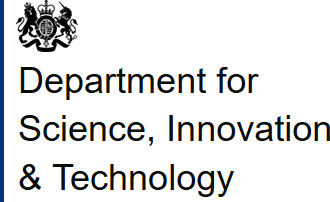HISTORIC PRESS RELEASE : New Government procurement technique will save millions for front line services – Andrew Smith [February 2001]
The press release issued by HM Treasury on 20 February 2001.
The taxpayer is to benefit from improved front line public services under a new procurement technique, designed to deliver value for money improvements and successful completion of major civil central government projects, Andrew Smith, Chief Secretary to the Treasury, announced today.
The Gateway process has identified potential savings from value for money improvements made in pilot projects which could amount to up to £150 million. This figure is expected to rise to £500 million annually once the full roll out of new projects take effect in 3-4 years time.
The ‘Gateway Review’, a technique introduced by the Office of Government Commerce, will be managed operated by them along private sector lines. Major, complex or novel government acquisition projects, including those involving Construction, IT and PFI will only pass through a series of five ‘gates’ at key stages in their lifecycle, when given a green light to do so.
Speaking at the ‘Gateway’ launch in London at 12 Downing Street, Andrew Smith said:
“We have a duty of care to the taxpayer to eliminate poor procurement methods and to ensure value for money improvements. For every pound saved in procurement is a pound more for front line public services like hospitals, education, fighting crime and investing in transport.
Through the Office of Government Commerce we now have a commercially minded reliable management system – the Gateway Process – that can be applied to every major Government project. Such projects will pass through each ?gate?, only when rigorous tests have been met.
Failure in big projects doesn’t come cheap and is no longer a concept that the public is prepared to accept in the development and construction of major government projects. Poor procurement leads to the waste of public finances. That is why the Gateway makes commercial common sense.”
‘Designed for success’ the Gateway Process comprises five major ?gates? through which projects must pass to test their procurement viability:
- Gate 1 – justify business case
- Gate 2 – approve procurement method
- Gate 3 – approve award of contract
- Gate 4 – test whether project is ready to go live
- Gate 5 – identify if project has delivered planned benefits
The Gateway is a review of a project carried out at key decision points by an independent team of experienced experts sponsored by the OGC project team. The reviews are timed to fit within existing project timescales that identify the key issues for success in major projects. They will minimise the risk of failure of major government projects and, with it, remove the huge waste of money that comes hand in hand with failure.
Peter Gershon, the OGC’s Chief Executive said:
I am confident that the Gateway Process can make a huge difference to the way the public sector procures large government projects. Historically there has been wide variability on the outcomes of major projects with too many being late, over budget and not generating the planned level of benefits.
The OGC Gateway Process is based on techniques that have been tried and tested in the private sector and provides senior managers in government with the powerful tool to help manage these projects better in future.
The introduction of five stages to the Gateway Process will ensure that projects that have not met our rigid criteria will fail to proceed. This will enable appropriate corrective action to be taken. The successful testing of pilot projects over the past nine months demonstrates that the Gateway represents a huge improvement in the government’s procurement capability.
Ian McCartney, the Minister responsible for e-Government said:
I welcome the launch of the OGC Gateway Review process. It provides a clear and sensible process to assure project management and development and to secure ultimate success.
With the publication of ‘Successful IT : Modernising Government in Action’ and the progress report last year, Government is implementing one of the most comprehensive programmes ever to improve the delivery of government projects enabled by IT.
Initiatives to upskill civil servants, improve project management and measures to streamline the management of projects, have already been put into practice. The Gateway Review Process takes the implementation of “Successful IT” one step further, asking the difficult questions at key stages of projects to support departments in delivering value for money in modernisation of government services. Gateway reviews have already been piloted using techniques proven in the private sector. Running since May, the pilots have reached various stages of the five gates system.
Reviews are short and intensive aimed at identifying the key issues for success. Each gate review will take approximate 4-5 days and fit within existing project timescales.
Pilots with project values amounting to some £3 billion are expected to achieve value added benefits in excess of 5%.
The Gateway Process will be fully operational this year though the full benefits will not be realised for 3-4 years. That is when the full value of the Gateway will realise the most benefits.
Large, complex and novel projects are an important component of government procurement. There are more than 200 organisations in government who spend billions of pounds on such projects each year.



